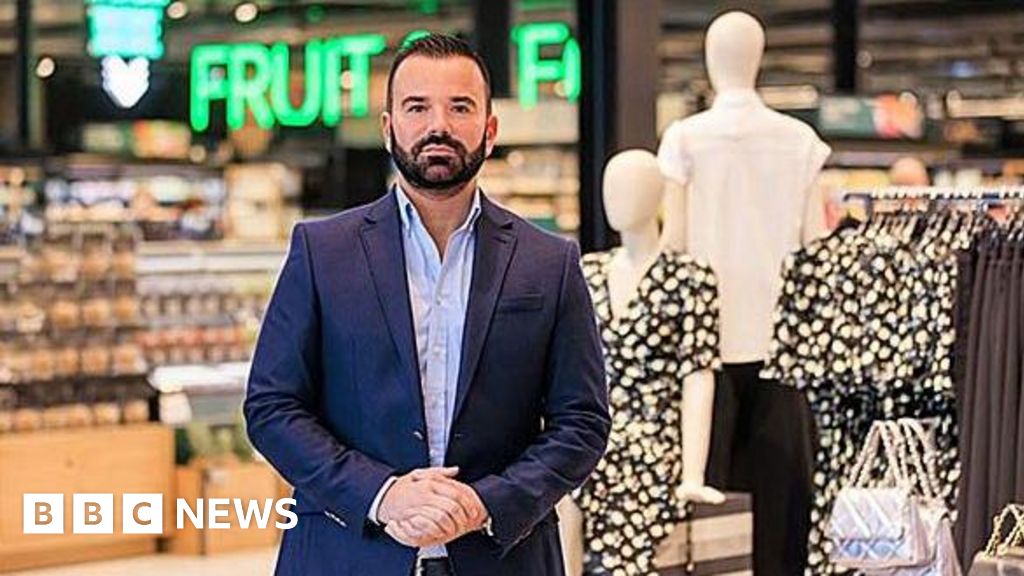ARTICLE AD BOX
By Nikhil Inamdar
BBC Business Correspondent, Mumbai
image sourceGetty Images
image captionHybrid or flexible work models are here to stayWhen India imposed a lockdown last year to curb the spread of Covid, IT behemoth Tata Consultancy Services (TCS), which employs more than 500,000 people, shut its offices overnight.
Now, after 18 months of remote work, the country's biggest private employer is gearing up to return to the office. It's time to "replenish" the social capital that an office environment fosters, Chief Operating Officer NG Subramaniam told the BBC.
Some 90% of the company's staff in India have received at least one dose of the Covid jab so far. India's vaccine drive has picked up in the last month - half the country's eligible population has been partially vaccinated.
"The over-arching feedback we've got is that about 50% of the people feel they can come to work," Mr Subramaniam said.
As Covid cases fall and restrictions are eased, several major IT firms, including Infosys and Wipro, are hoping to bring employees back to the office. Not all of them know how this will unfold.
But, TCS plans to ask 80-90% of its employees to return, at least initially, before switching to a hybrid model of work, under which only 25% of its staff will work from office by 2025.
A lot will depend on whether India sees a third Covid wave. But one thing is clear: hybrid or flexible models of work are here to stay. It's still a loosely defined term that companies can adapt to suit their requirements but it can effectively allow people to work from different locations and even at varying hours.
This will have far-reaching consequences, not just for India's IT companies but also the industries that support them, from real estate to hospitality.
The knock-on effect
India's IT industry employs a quarter of the 12-13 million people in the organised private workforce. And it has been an engine for economic growth in cities such as Bengaluru, Hyderabad and Pune, where TCS, Infosys, Wipro and others have built huge campuses for their offices.
TCS alone has offices in 250 locations spanning 50 countries. The company says it's yet to explore the logistics of hybrid work - what happens to its physical assets such as office buildings, or will it, like Google, introduce pay cuts for staff who opt to work from home permanently.
image sourceGetty Images
image captionIndian IT firms like Infosys have built sprawling campuses in major citiesBut remote working is likely to pose a grave risk to businesses like commercial real estate business.
The IT services sector accounts for 40% of India's office leases, and the remote working trend will lead to a drop in the demand for new commercial space, according to analytics firm India Ratings & Research.
Although few companies have cancelled their leases, the demand or new office space in the next few years is likely to be 40% below pre-pandemic levels as companies evaluate their long-term strategies, according to India Ratings.
And as firms shutter workplaces, businesses dependent on the office economy - food and beverage, hospitality, retail and maintenance - are also expected to suffer. The software industry spurred massive indirect employment in all of these sectors.
"I expect a 50% drop in business," Rahul Bohra, Managing Partner at Rama Hospitality told the BBC. Mr Bohra ran food courts across IT parks in the western state of Maharashtra until the pandemic closed his business.
Before Covid hit, the smallest IT park Mr Bohra did business in had up to 40,000 people working in its offices, he said.
"But now, even when the employees do come back, it will be on a rotational basis for two to three days a week."
'The future is cloud-shoring'
The pandemic is also ringing in fundamental changes in India's role as an offshore destination.
Through the 1990s and 2000s global companies shifted their back office functions to cities like Bengaluru to benefit from an abundance of low cost tech workers.
But with the shift to remote working, TCS' Mr Subramaniam believes the future of software services will rest not on offshoring but "cloud-shoring".
Covid has forced the company to finds ways to tap into talent across borders and deploy it on projects world over.
The company now plans to build the world's largest distributed talent market place on the cloud, connecting staff to jobs virtually - from anywhere and at anytime.
"We are talking about a fungible talent pool across the globe and to define it as a talent cloud," Mr Subramaniam said.
image sourceGetty Images
image captionIndia's unprecedented lockdown last year has forced companies to re-evaluate"There are certain aspects of work which will still be done in one location, but the majority of work could be done without bringing people together," he added.
But TCS says it will continue to invest in and hire people physically in its biggest markets.
The firm employs more than 18,000 people in the UK and claims to have become the country's largest IT services company this year. It has plans to hire more than 1,500 people in UK this year, including 500 graduates from local universities.
The company also said it will create 5,000 jobs in the US, with additional investments expected later this year.
Mr Subramaniam said his company is committed to every market they operate in.
"You can't just be sitting somewhere in the cloud…You have to be locally present, and locally visible," he said.

 3 years ago
226
3 years ago
226








 English (US) ·
English (US) ·